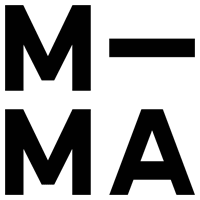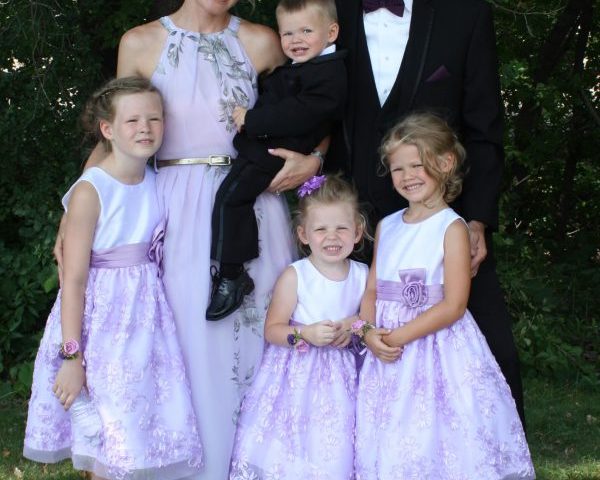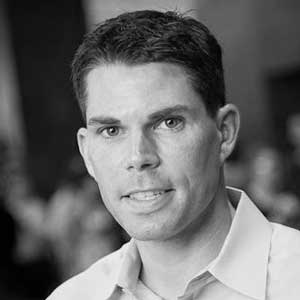Event Recap: Matt Chessen, Artificial Intelligence, Computational Propaganda and What It Means for Marketers
November 17, 2017
Net Neutrality
November 27, 2017As current MIMA President Ryan Arnholt prepares to wrap-up his service on the board and executive team of the organization, we take a look back with him on his time at MIMA. Learn more about Ryan, his background, experiences with MIMA and a peek at what’s next. Thanks, Ryan for everything, you will be missed but hopefully not too far away.
Tell us about when you joined MIMA and why?
Early in my career (1998-2006), I had only run across a couple dozen “internet marketing” people. I thought we were unicorns. I later discovered that I had been living in a cave.
I started attending MIMA events through my 3M group membership in 2007 and the whole thing was pretty fascinating to me. There were 1,000 people that lived and worked right down the street, spoke my language and got together on a regular basis to learn and talk shop.
It was late 2010 when I had a few coffees with MIMA board members to learn more about the Board and the mission of the organization. I saw an opportunity to contribute, work with great people and learn new skills – so I joined the board in mid-2011.
What are you most proud of as you look back at your tenure at MIMA?
Most organizations can summarize all of its hopes and dreams by saying that they want to be bigger and better. But with a volunteer organization and limited time commitments, we often can only focus on one thing at a time. So we’ve prioritized making MIMA better over the past five years; more programming options and a focus on content, we’ve established relationships with other organizations in town and we’ve created deeper relationships with our members. If we’re doing all of those things well, growth in the size of our organization will come with time. But I’m proud that we have been able to focus and deliver on making MIMA a better experience first.
Why should others join MIMA? What does the organization bring to the Twin Cities?
There are thousands of people in this area that are raising their hands and attending events; acknowledging that they would like to learn new things, connect with others and improve their careers. MIMA serves as the foundation in the middle of the digital marketing community. If you’re new to town or early in your career, you should check out events to find future colleagues and get your finger on the pulse of what’s happening in digital. If you’ve been in the community for a decade or more, MIMA events are often a reunion of sorts to plug in and catch up.
What has your time at MIMA meant to your career?
The MIMA Board has been an amazing proving ground for testing your tactical, managerial and people skills. Just about everything that happens in your day job is a result of a carrot or a stick. You want to deliver on a set of goals and maybe even look sharp while doing it because that is how you make money to afford your house, car and your subscription to Cat Fancy.
But how good are you at managing people that don’t have to listen to you? How good are your ideas if you also have to drum up a team of volunteers to help you execute and you can only pay them with pizza and coffee?
I have learned invaluable skills in managing and motivating people to make commitments and do great work. These are the most important skills that I have learned and will have the greatest impact on my career.
Tell us about your career a bit and your current role?
In high school, I won a computer programming competition. As a 16-year old college-bound senior, I decided I wanted to be a computer programmer and thus majored in computer engineering. I didn’t have much of a chance to reflect on the fact that I hated computer programming and this would not end well.
What I discovered in college was that I loved computers and technology. I came out of undergrad and spent the next five years at an Internet startup. I then went to business school, where I re-positioned myself for the corporate world and learned how to wear a suit, turn spreadsheets into powerpoints and vice versa. I spent the next decade getting deeper into marketing technology, advertising, and digital marketing at 3M, Specific Media and Optum.
And then about a year ago, I started something new with an old friend. I founded Quickety, a web-based marketing services company. We’ve had successes. We’ve had failures. We’ve changed our business model three times. This is pretty much what I thought I signed up for, so I guess I have no choice but to say I’m loving it.
What is your favorite marketing campaign and why?
I’m not really an “ad guy”, as I’ve spent so much time in B2B and big TV spots are usually not the place to throw your money. But something that really caught my attention was the GE campaign around “Owen,” a fictitious new grad and fresh-faced employee writing code for GE. GE has a weakness – they are perceived as a boring industrial company. And in a fight for talent, that would be unappealing to young developers – even though they could be working on arguably the world’s biggest challenges – health care, industrial automation, transportation, and renewable energy. GE is coming right out and saying that they have a perception problem and the future of the world depends the brightest minds working at GE instead of developing silly apps that place fruit overlays on pictures of cats. GE’s message obviously helped them in their recruiting efforts, but I feel like that helps the industrial and manufacturing sector as a whole. We need the brightest minds working on the biggest problems and GE is bringing attention to that issue.
What does the future of digital marketing look like to you? What should students be focused on mastering?
The proliferation of tools and platforms to learn more, track more and deliver customized messages to individuals will continue. Really cool and creepier things will continue to emerge now that we have spies like Alexa that we’ve willingly invited into our homes. How we process that data and what we do about it is the future. Flawlessly executed digital marketing could feel like a series of nudges, with a successful conversion event being the seemingly completely voluntary action of a consumer or business making the decision to purchase. They woke up Tuesday morning and decided to buy a purple lamp, and they don’t know why. At the heart of success is understanding the psychology of your buyer and the story you tell to get them to choose you. In the future, we will have more data than we know what to do with. Students would do well to focus on not only processing that data, but also turning it into a compelling value proposition.
What does the next 5-10 years look like for you?
I have unwittingly made changes about every five years of my career for the past 20 years. I can reflect on those now as 1-2 year course corrections where I continued to steer towards a place where I am happy, healthy and killing it. I’m in a course correction now, so the only thing I can say is that I have my eyes and ears wide open to ideas.
Tell us a bit about what you do when you’re not focused on MIMA or your marketing career?
I have four kids (2, 4, 6, 8). That means I have four tiny, adorable people plotting against me and my foolish, idyllic vision of a clean and serene home. But I also have the great beginnings of a rock band, a soccer team, a landscape crew and a chess club. So it’s a wash.
I’ve run 14 marathons, including the 2017 Boston Marathon. Back in 2006, I had this insane idea that I just had to get a little faster and train a little harder to qualify for Boston. And it took me 10 years of running 1-2 marathons a year to do it. I’m still running, but don’t know if I’ll continue my streak of running a marathon per year.
I’ve played guitar and bass in bands for years, going way back to college when I started a little record label and recorded some other bands. I’m been writing a musical with a couple other guys for the last 18 months and we’re shooting for getting it on a stage in 2018….or 2019…or 2030.
Do you plan to always be in the Minneapolis area?
Absolutely. I transplanted here from Michigan in 2003 and didn’t give much of a thought to how long I would be here beyond a couple years. By 2006, I couldn’t imagine leaving. Minnesota has a very strong drawing and staying power rooted in great communities, people and career opportunities. There are not many other places quite like it.
.

